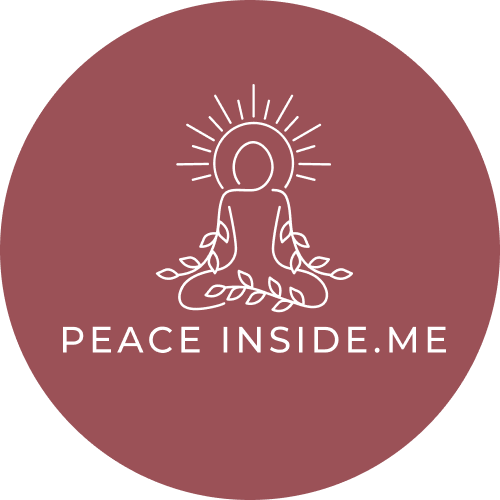peaceinside.me
Women’s Drug Rehab: Finding the Right Treatment Near You
Please note, this post is partially or fully sponsored and may contain affiliate links.
Addiction affects millions of women across the world—but recovery is always possible. The first step is often the hardest: asking for help. Whether you're seeking support for yourself, a sister, a daughter, or a friend, finding the right women’s drug rehab can make all the difference.
Women face unique challenges in addiction and recovery, from hormonal shifts and trauma to caregiving roles and mental health issues. That’s why gender-specific treatment centers exist—to offer care that’s designed with women’s needs in mind.
This article explains what makes women’s rehab different, what treatment involves, and how to find the best program near you.
Why Women Need Specialized Drug Rehab
Addiction doesn’t look the same in men and women. Women often start using substances for different reasons, experience addiction differently, and respond better to gender-specific support.
According to the National Institute on Drug Abuse (NIDA):
Women face unique challenges in addiction and recovery, from hormonal shifts and trauma to caregiving roles and mental health issues. That’s why gender-specific treatment centers exist—to offer care that’s designed with women’s needs in mind.
This article explains what makes women’s rehab different, what treatment involves, and how to find the best program near you.
Why Women Need Specialized Drug Rehab
Addiction doesn’t look the same in men and women. Women often start using substances for different reasons, experience addiction differently, and respond better to gender-specific support.
According to the National Institute on Drug Abuse (NIDA):
- Women progress from initial use to addiction more quickly than men, a phenomenon known as “telescoping.”
- Women are more likely to struggle with co-occurring mental health disorders, such as anxiety, depression, and eating disorders.
- Hormones, pregnancy, and trauma histories can all affect how women respond to drugs—and to treatment [1].

What to Expect in a Women’s Drug Rehab Program
A women’s rehab center offers a safe, nurturing space where women can focus on healing without the distractions or pressures of a mixed-gender environment.
Here’s what a quality women’s treatment program typically includes:
1. Trauma-Informed Care
Many women in rehab have experienced trauma, such as domestic violence, childhood abuse, or sexual assault. According to SAMHSA, about 55-99% of women in substance use treatment report a history of trauma [2].
Trauma-informed care creates a treatment setting that is:
2. Dual Diagnosis Support
Many women use drugs or alcohol to cope with underlying mental health struggles, such as:
3. Peer Support and Community
Healing happens faster when we feel understood. In a women’s-only rehab, clients share similar life roles, challenges, and emotions. This creates:
4. Medical Detox and Health Support
Women’s bodies respond differently to substances than men’s. Some substances stay in a woman’s system longer, and withdrawal symptoms can be more intense.
Rehab programs often begin with medically supervised detox to safely manage symptoms and prevent complications. Women also receive:
5. Life Skills and Empowerment
Recovery isn’t just about stopping drug use—it’s about rebuilding a life with confidence and purpose.
Many women’s rehabs include training and support for:
A women’s rehab center offers a safe, nurturing space where women can focus on healing without the distractions or pressures of a mixed-gender environment.
Here’s what a quality women’s treatment program typically includes:
1. Trauma-Informed Care
Many women in rehab have experienced trauma, such as domestic violence, childhood abuse, or sexual assault. According to SAMHSA, about 55-99% of women in substance use treatment report a history of trauma [2].
Trauma-informed care creates a treatment setting that is:
- Emotionally and physically safe
- Empowering, not shaming
- Focused on trust, choice, and collaboration
2. Dual Diagnosis Support
Many women use drugs or alcohol to cope with underlying mental health struggles, such as:
- Post-Traumatic Stress Disorder (PTSD)
- Depression
- Anxiety disorders
- Bipolar disorder
- Eating disorders
3. Peer Support and Community
Healing happens faster when we feel understood. In a women’s-only rehab, clients share similar life roles, challenges, and emotions. This creates:
- A strong sense of sisterhood
- Honest conversations about motherhood, body image, relationships, and trauma
- Support systems that extend beyond treatment
4. Medical Detox and Health Support
Women’s bodies respond differently to substances than men’s. Some substances stay in a woman’s system longer, and withdrawal symptoms can be more intense.
Rehab programs often begin with medically supervised detox to safely manage symptoms and prevent complications. Women also receive:
- Reproductive and hormonal health care
- Nutritional support
- Sleep and stress management
5. Life Skills and Empowerment
Recovery isn’t just about stopping drug use—it’s about rebuilding a life with confidence and purpose.
Many women’s rehabs include training and support for:
- Parenting and family dynamics
- Budgeting and financial wellness
- Career development and education
- Healthy boundaries and relationships

Types of Women’s Drug Rehab Programs
There are several levels of care depending on the severity of addiction and the woman’s personal needs:
1. Inpatient/Residential Treatment
2. Outpatient Treatment (OP and IOP)
3. Sober Living Homes
How to Find the Right Treatment Near You
Choosing the right women’s drug rehab involves more than just picking the closest facility. Consider the following:
1. Licensing and Accreditation
Look for centers accredited by organizations like The Joint Commission or CARF, which ensure high-quality, evidence-based care.
2. Treatment Approach
Ask if the program:
3. Insurance and Payment Options
Many centers accept private insurance, Medicaid, or offer sliding-scale fees and payment plans. Don’t let cost stop you from getting help—there are options available.
4. Proximity to Support
Some women prefer a local center to stay close to children or family. Others choose out-of-town rehabs for privacy or a fresh start. Decide what makes you feel safest and supported.
There are several levels of care depending on the severity of addiction and the woman’s personal needs:
1. Inpatient/Residential Treatment
- 24/7 medical and emotional support
- Ideal for severe addiction or co-occurring disorders
- Lasts 30–90 days or longer
2. Outpatient Treatment (OP and IOP)
- Flexible schedule; clients live at home or in sober housing
- Intensive Outpatient Programs (IOP) meet 3–5 times a week
- Great for transitioning out of inpatient or for women with childcare/work obligations
3. Sober Living Homes
- Drug- and alcohol-free housing with structure
- Encourages accountability and community
- Often used after inpatient treatment
How to Find the Right Treatment Near You
Choosing the right women’s drug rehab involves more than just picking the closest facility. Consider the following:
1. Licensing and Accreditation
Look for centers accredited by organizations like The Joint Commission or CARF, which ensure high-quality, evidence-based care.
2. Treatment Approach
Ask if the program:
- Offers trauma-informed and dual diagnosis care
- Includes women-only group therapy
- Provides family or child-related support
- Has aftercare or alumni programs
3. Insurance and Payment Options
Many centers accept private insurance, Medicaid, or offer sliding-scale fees and payment plans. Don’t let cost stop you from getting help—there are options available.
4. Proximity to Support
Some women prefer a local center to stay close to children or family. Others choose out-of-town rehabs for privacy or a fresh start. Decide what makes you feel safest and supported.

Success Story: Rachel’s Recovery Journey
Rachel, a 35-year-old single mom, began drinking after the death of her mother. What started as a few glasses of wine became a daily struggle with alcohol.
“I didn’t think I had a problem—I was holding down a job, raising my daughter. But I was emotionally empty.”
Rachel entered a 60-day women’s rehab that focused on trauma and grief recovery. She found support through therapy, yoga, and peer counseling. Today, she’s two years sober and volunteers at a women’s recovery center.
“Rehab didn’t just help me quit drinking—it gave me the tools to live fully again.”
Rachel, a 35-year-old single mom, began drinking after the death of her mother. What started as a few glasses of wine became a daily struggle with alcohol.
“I didn’t think I had a problem—I was holding down a job, raising my daughter. But I was emotionally empty.”
Rachel entered a 60-day women’s rehab that focused on trauma and grief recovery. She found support through therapy, yoga, and peer counseling. Today, she’s two years sober and volunteers at a women’s recovery center.
“Rehab didn’t just help me quit drinking—it gave me the tools to live fully again.”
Final Thoughts
Women face unique challenges in addiction—but they also have incredible strength. With the right support, every woman can heal, grow, and reclaim her life.
Women’s drug rehab programs provide a safe, empowering space where recovery becomes possible. Whether you’re dealing with trauma, mental health challenges, or the pressure of caregiving, there’s a program that’s built to support you.
Don’t wait to seek help. The first step is the hardest—but it’s also the most powerful.
References
[1] National Institute on Drug Abuse (NIDA). (2020). Substance Use in Women. https://nida.nih.gov
[2] Substance Abuse and Mental Health Services Administration (SAMHSA). (2021). Trauma-Informed Approach and Trauma-Specific Interventions. https://www.samhsa.gov
Women face unique challenges in addiction—but they also have incredible strength. With the right support, every woman can heal, grow, and reclaim her life.
Women’s drug rehab programs provide a safe, empowering space where recovery becomes possible. Whether you’re dealing with trauma, mental health challenges, or the pressure of caregiving, there’s a program that’s built to support you.
Don’t wait to seek help. The first step is the hardest—but it’s also the most powerful.
References
[1] National Institute on Drug Abuse (NIDA). (2020). Substance Use in Women. https://nida.nih.gov
[2] Substance Abuse and Mental Health Services Administration (SAMHSA). (2021). Trauma-Informed Approach and Trauma-Specific Interventions. https://www.samhsa.gov
~
See a typo or inaccuracy? Let us know so we can fix it!
Sharing is caring ❤️
~
~
~
BECOME A PEACE INSIDER
Sign up for peaceinside.me information, inspiration, and specials.



